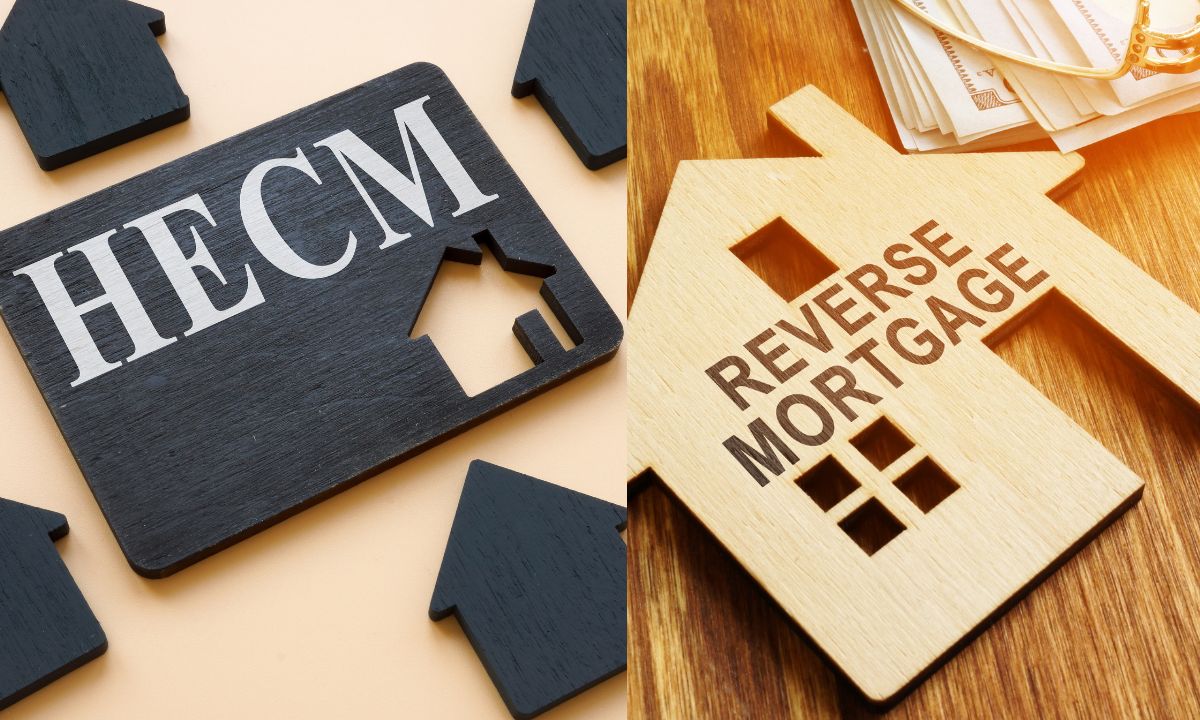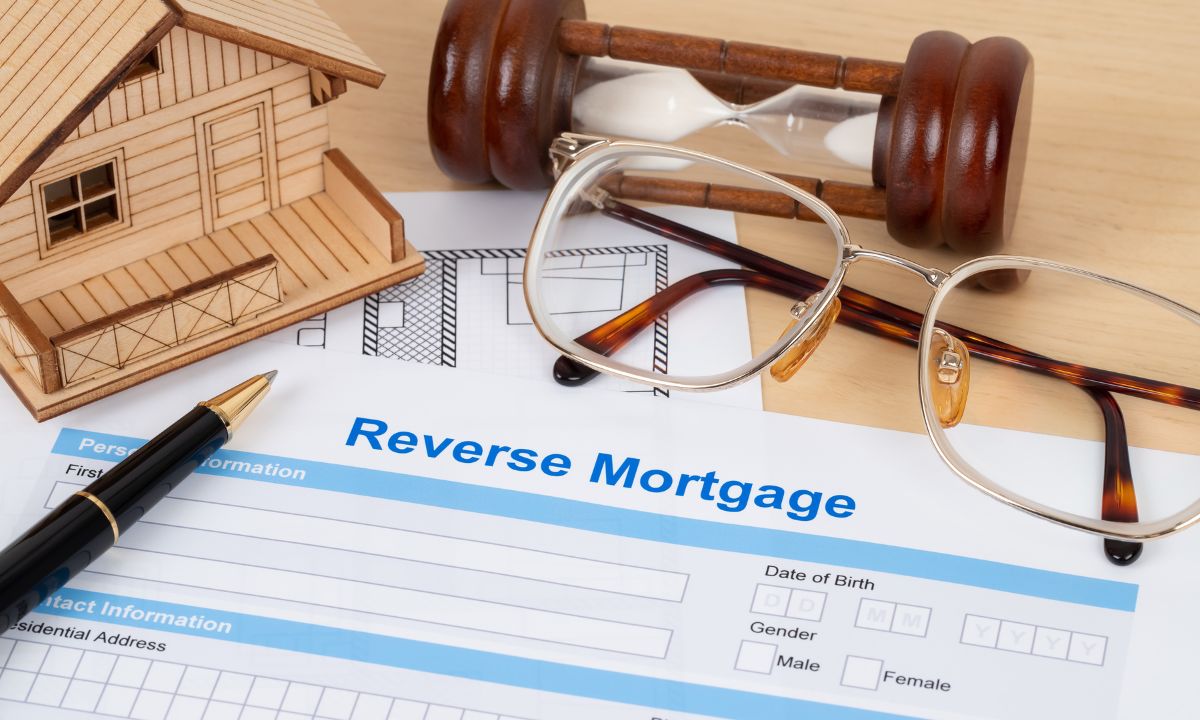What is the Difference Between a Reverse Mortgage and a Home Equity Conversion Mortgage?
 Retirement planning is about ensuring you have a steady income stream to support yourself comfortably. For many retirees, tapping into the equity in their homes becomes an attractive option. Two terms often come up in this context: reverse mortgage and Home Equity Conversion Mortgage (HECM). Although they are related, there are some critical differences between them. Understanding these options can help you make an informed decision about what suits your financial needs.
Retirement planning is about ensuring you have a steady income stream to support yourself comfortably. For many retirees, tapping into the equity in their homes becomes an attractive option. Two terms often come up in this context: reverse mortgage and Home Equity Conversion Mortgage (HECM). Although they are related, there are some critical differences between them. Understanding these options can help you make an informed decision about what suits your financial needs.
What is a Reverse Mortgage?
A reverse mortgage allows homeowners to access the equity in their home and convert it into cash without selling their property. It’s often used to supplement Social Security benefits or other retirement income. Unlike a traditional mortgage, where you make monthly payments to the lender, a reverse mortgage works the other way around—the lender pays you. These payments can be structured in several ways: as a lump sum, fixed monthly payments, or a line of credit you can access as needed.
One significant advantage of a reverse mortgage is that no monthly mortgage payments are required as long as you live in the home and maintain it. The loan balance becomes due when you move out or sell the property. It’s important to note that while you’re borrowing against your home’s equity, your name remains on the title, meaning you retain ownership throughout the duration of the loan.
Reverse mortgages are designed for homeowners aged 62 and older, and they can be a valuable tool for those who own their homes outright or have significant equity. However, it’s crucial to understand the terms and conditions of these loans to avoid potential pitfalls, such as losing your home if you fail to meet the loan obligations, like paying property taxes and homeowners insurance.
What is a Home Equity Conversion Mortgage (HECM)?
A Home Equity Conversion Mortgage (HECM) is the most common type of reverse mortgage, and it’s backed by the Federal Housing Administration (FHA). It’s specifically designed for homeowners aged 62 and older and offers additional protections for both borrowers and their heirs.
One of the primary requirements for an HECM is that you must use a portion of the loan to pay off any remaining balance on your existing mortgage, if applicable. Once that’s settled, any remaining funds are disbursed to you, either as a lump sum, monthly payments, or a line of credit. The amount you can receive is determined by several factors, including the age of the youngest borrower, the current interest rate, and the national lending limit set by the FHA. Typically, older homeowners with higher home equity and lower loan balances can receive more funds.
HECMs provide flexibility and peace of mind. Because they’re insured by the FHA, you and your heirs are protected if the loan balance ever exceeds the home’s value when it’s time to sell. This protection ensures that neither you nor your estate will owe more than the home’s worth. However, like all reverse mortgages, HECMs come with fees and interest rates, so it’s crucial to review the terms carefully.
Is This Option Right for You?
Deciding whether a reverse mortgage or an HECM is right for you depends on your unique financial situation. Before proceeding, it’s wise to consult with a mortgage professional who can explain the details and help you weigh the pros and cons based on your circumstances. We can walk you through the application process, evaluate your eligibility, and ensure you understand your obligations as a borrower.
#ReverseMortgage #HECM #RetirementPlanning #SeniorFinance #HomeEquity #FHA #MortgageOptions #FinancialAdvice #GoldenYears #HomeOwnership #MortgageProfessional

 When you first opted for a reverse mortgage, it might have felt like the perfect solution to tap into your home equity and enjoy your retirement without monthly mortgage payments. As time passes, your financial situation, goals, or the market itself can change, making you wonder: “Can I refinance my reverse mortgage?” The answer is yes, but it’s essential to understand what is involved before making a move.
When you first opted for a reverse mortgage, it might have felt like the perfect solution to tap into your home equity and enjoy your retirement without monthly mortgage payments. As time passes, your financial situation, goals, or the market itself can change, making you wonder: “Can I refinance my reverse mortgage?” The answer is yes, but it’s essential to understand what is involved before making a move. For many seniors, home equity represents a substantial portion of their wealth. However, accessing this equity while maintaining homeownership can be challenging. This is where Home Equity Conversion Mortgage (HECM), commonly known as a reverse mortgage, emerges as a potential solution. We will discuss the HECM program, shedding light on its features, costs, and potential risks, to help seniors make informed decisions about their financial future.
For many seniors, home equity represents a substantial portion of their wealth. However, accessing this equity while maintaining homeownership can be challenging. This is where Home Equity Conversion Mortgage (HECM), commonly known as a reverse mortgage, emerges as a potential solution. We will discuss the HECM program, shedding light on its features, costs, and potential risks, to help seniors make informed decisions about their financial future.